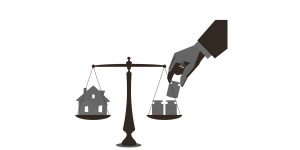Last will are always faced with probate before they can be implemented and the estate distributed. After the death of an estate owner, probate would be required to distribute the assets to family and any other named beneficiary. This is usually an emotional and trying time, when they will be faced with a lot of decisions to make. Probate is legal process of determining the authenticity of a will before it can be implemented. The major reason for probate is to ensure that the Will is what was left behind by the deceased. Often times, a beneficiary may feel dissatisfied with the intent of the Will stating that the decedent was forced into signing the will or that they are being cheated of their share of the estate.
When probate arises, the best hand to handle it is a probate lawyer. A probate lawyer is a lawyer who specializes in handling probate cases for their client. When involved in a probate cases, the duties of the probate lawyer range from advising the personal representative, the estate beneficiaries on how to settle the estate of a decedent.
What would a probate lawyer do?
- Initiate probate proceedings and defend your interest.
Your probate attorney would help you initiate the probate hearing in court. Before any probate hearing is admitted to the court, all necessary document must have been prepared and submitted. A probate attorney knows the right document to help you get through the probate in time. Even during the process, the attorney would defend your interest and ensure that the proceedings goes in your favor.
- Locate the decedent’ assets.
Most times a decedent can own more than one estate across several states. Locating and collecting these assets can be extremely difficult. Several processes and documents approval would be required to claim estate properties outside where the deceased lived. You need a probate attorney to help you carry out the necessary formality involved.
Also, the probate lawyer will help in verifying the claims of creditors. Typically, the probate attorney would oversee any financial records or claim presented by the personal representative. However, the estate executor will also have to keep track of the estate checking account and pay estate debts, bills and other expenses.
- Settle dispute
During probate session, it is not uncommon for dispute among many issues to come up. Dispute sometimes set in among estate beneficiaries or between the executor and a particular beneficiary who doesn’t feel satisfied with then estate decisions. Settling these dispute estates requires professional hands as estate and probate processes could get complicated. A probate attorney can come in and settle all these disputes.
Note
In the complete absence of a will, your assets will be subject to intestate succession. A person’s assets can only be transferred to direct, blood-related family members when a will has not been drafted. A non-family member, such as an unmarried partner, is not eligible to receive any portion of your assets. You must name your partner as a beneficiary on your will if you would like them to be get a part of your estate. The process of probate is the legal process of determining the validity of a will before its contents are carried out.
How does a probate situation look like?
Just like every court process, for probate of a last will to begin, probate procession must be initiated. During probate process, the decedent’s family or named beneficiaries are not mandated to be present but they can chose to present. The estate executor and probate lawyer would be required to submit relevant documents to the court. Here is how a probate process look like:
- Initiating probate proceeding.
- Locating the decadent’s estate and other asset properties.
- Determining the date of death values of the decedent assets.
- Identifying the decedent creditors and notifying them of this death. This is required before the estate plan can be implemented.
- Paying of the decedent’s death. This may include tax incurred on estate as well as other accountable debts incurred during the probate process.
- Preparing and filling taxes returns on the deceased properties.
- After the above process, the court can then give a nod to the personal representative to distribute the decedent’s estate as stated in the Will.







